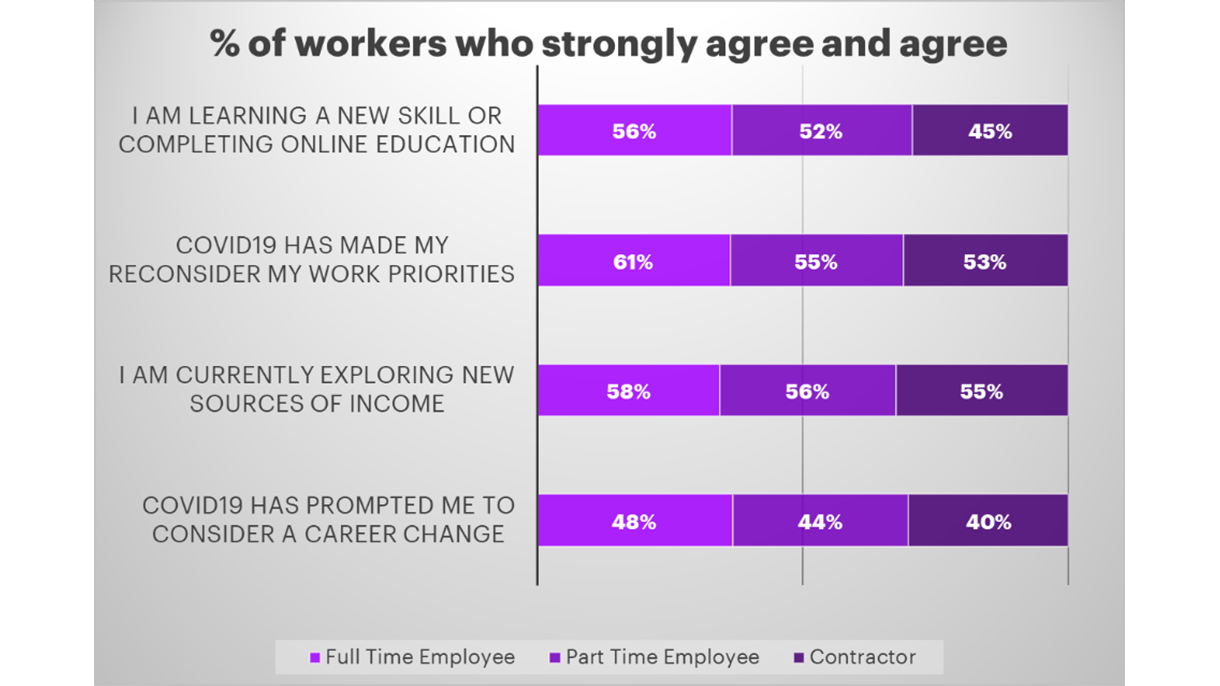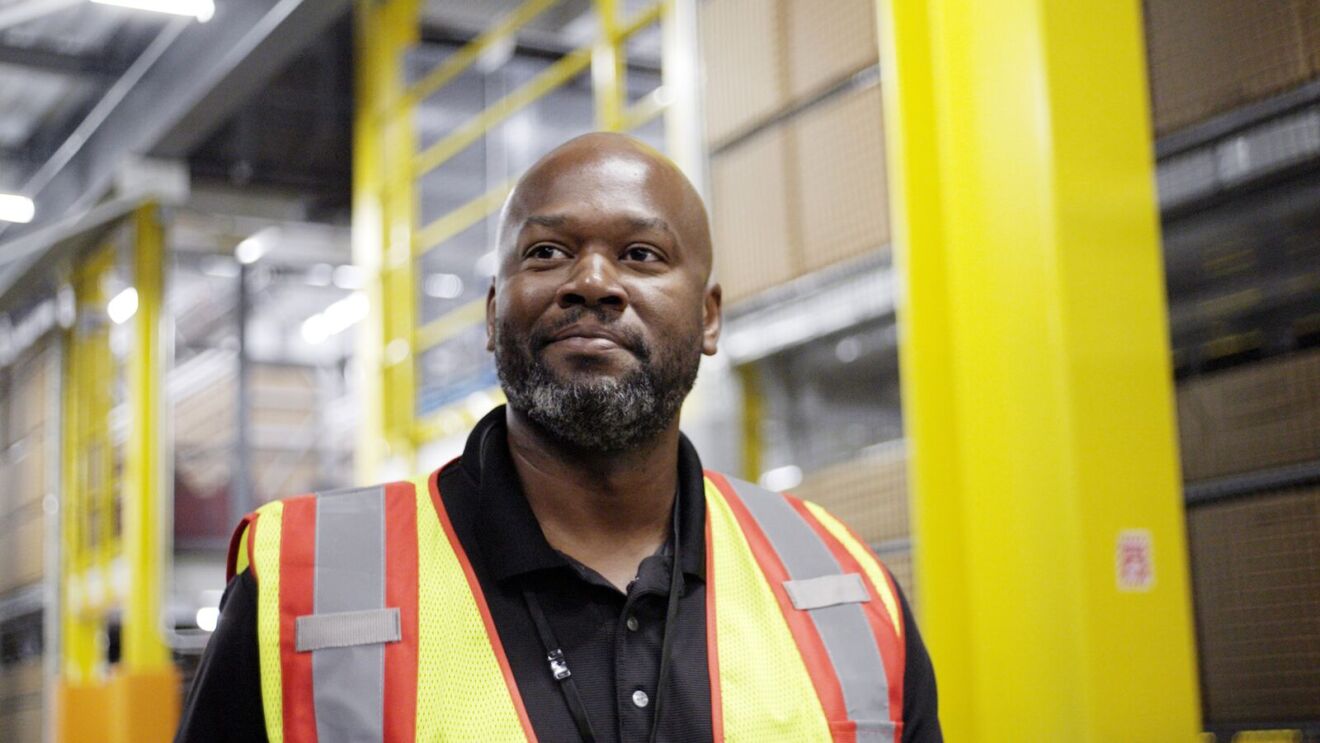We recently spoke at a conference with C-suite executives and were asked—"What does the world of work look like in 2022? Specifically, what skills will be needed?"
We used to be much more eager to jump in and answer these types of questions. As an organizational behaviorist studying the future of work for the past several years and as a C-suite business leader with 30+ years of experience, we felt we had a good handle on the slowly changing nature of work. Work was gradually being augmented by technologies that allow people to take on more technical and creative work. There were signs of a looming technical skills gap, but many experts felt we had the time to address that.
Then the COVID-19 pandemic happened. The future of work was no longer an abstract idea that organizational leaders needed to address, it was right in front of them. Ever present was the need to mobilize and digitalize their operations in order to survive this global crisis. What became glaringly obvious was the need for technical skills. No matter where in the supply chain one might have worked, the need to work alongside technologies became a priority to keep people healthy and safe. Technology was no longer something to be feared for its automation, but rather to be embraced for its ability to augment workers into better and safer work roles. In fact, Forrester research shows that automation may become key to surviving a coronavirus recession.
Accenture Research has been collecting over 6,000 global workforce sentiments every few weeks since COVID-19 hit. In our most recent data, collected in June 2020, we found that 47% of workers reported that their job responsibilities had changed as a direct result of the pandemic. In early March, only 34% of workers were working remotely, and now that number has jumped to nearly 60% of global workers. We also see that nearly 50% of the global workers in our sample are actively engaged in some sort of upskilling as a result of the pandemic. Further, IDC research shows that more than half (57%) of organizations said they would invest in reskilling their workforce.
Based on this data we know that the world of work has dramatically shifted for many workers across the globe. It also shows how most workers were underprepared for this technological leap. But the eagerness to adapt and learn has also never been stronger in the workforce (see Figure 1).
Figure 1: Workers eager to engage in new skilling activities and career changes
 Source: Accenture Research Analysis based on 6,125 global workers collected during June 2-8, 2020
Source: Accenture Research Analysis based on 6,125 global workers collected during June 2-8, 2020Until recently, the pathways to upskill the workforce remained relatively hidden. There were many conversations around the need to upskill into technical roles, but there was much less access to data to help illuminate the trade-off decisions necessary to upskill. What roles would lead to the most sustainable career pathways? What investment or return would an individual or organization obtain from upskilling?
In our latest research, commissioned by Amazon, Upskilling for a Post-Pandemic Economy, we present compelling new evidence on pathways that ultimately lead to what we call "Opportunity Jobs." By nature, Opportunity Jobs address the fundamental needs of people by offering them greater livelihoods through increased income, intellectual stimulation and stability by ensuring low automation risk, dignity by entering growing industries, and resilience to withstand unexpected shocks in the labor markets.
Often, we’re asked: "What skills are most likely to lead to these Opportunity Jobs?" As with any strong research, the answer is nuanced and contextual, but there is one clear overarching theme.
Technical skills—especially those that include operational analyses, sciences, programming and systems evaluation—provide clear pathways to these Opportunity Jobs. Technical skills were always important, but the sense of urgency of obtaining them has never been more critical.
The future brings with it a lot of uncertainty in every aspect of our lives, and people will need access to Opportunity Jobs through smart and targeted skills investment. While we are hesitant to provide predictions of the world two-years from now, we are very confident with these two points:
First, in 2022, people will still need stability, dignity and intellectual stimulation in their work. These are all part of our shared human experience at work regardless of the year. You can learn more at a TedX given in December 2019.
Second, technical skills will be of the utmost importance for many individuals to transition into Opportunity Jobs. Our research shows that as many as one in three working Americans can begin their journey into these Opportunity Jobs with the right support and targeted investment of businesses. Creating a solid system for learning is more than just the right thing to do—it’s a competitive advantage. Now is the time to share information, and partner with other companies, academia, and nonprofits. Doing so will create shared workforce resilience for individuals, families and companies across the country. To collectively succeed, we need the ripple effect.
The future of work is now our present reality. The pathways to upskill into the future have never been clearer. Where will you start your upskilling journey?
Trending news and stories










